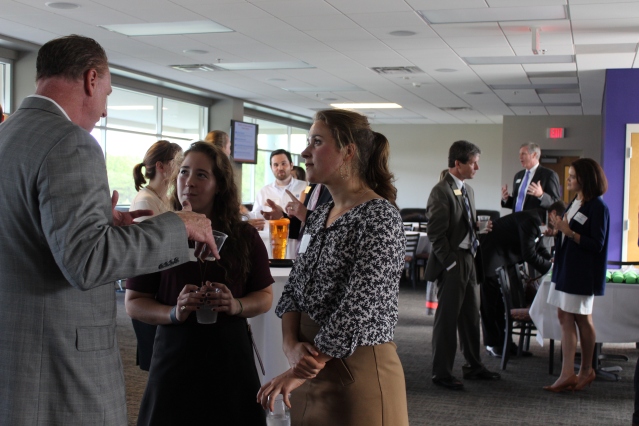The Malone Career Center has made some changes to its programming for the 2015-16 school year. In addition to the creation of a new administrative position, these changes present new approaches to connecting Furman students to their careers.
Dr. John Barker, director of the Malone Career Center, explained why the center is experimenting with new types of programming in addition to its regular service, which include the graduate school fair and individual assistance.
“We had a consultant come in this summer,” Barker said. “[He] talked about career services to a number of students. He looked at surveys.”
While the consultant commended Furman’s programming, his first recommendation was to drop one of the core things the Malone Career Center does best: workshops.
“Reason being, college students are not attending like they used to,” Barker said. “It’s a different generation.”
Nearly fifteen years ago, the average attendance at a Furman career development workshop was around 40 students. Last year, one workshop had an audience of only one student. Whereas the career center used to see hundreds of students at these workshops in the course of a year, attendance has dropped to the dozens. This follows a national decline in participation.
To offset the absence of workshops, new programs have taken their places and new connections have been made between departments.

One new program is Resumania, a drop-in resume critiquing initiative that ran Sept. 8-23. The center partnered with the Duke Library to meet students where they visited most frequently. Although it only operated for the month of September, the career center has already seen a great turnout.
“I think we’re going to have more students coming to Resumania [in the future] than we had for workshops,” Barker said. “Attendance more than justifies continuing this program as a regular offering.”
The Malone Career Center has also reached out to every academic department on campus to more efficiently inform students about the benefits of career services as it applies to specific majors.
In addition to the changes the career center has implemented, a separate position was added to the university administration this year to provide a more holistic approach to career and personal preparedness both for current students and for success in post-Furman life.
Former Athletic Director Dr. Gary Clark has become the Senior Associate for Strategic Career Initiatives. The role facilitates connections between different departments across campus that share relevant information for career development as well as connections between current students and alums.
“We’re developing infrastructure to pool alumni information so that we all have access across campus,” Clark said.
In addition to this effort, Clark and his team are also piloting a mentorship program, connecting a small group of current students with a similarly sized group of alumni. The program will be assessed at the end of the academic year with the hope that the mentorship program will be grown into a larger program offering in the future.
The changes that have been made not only to the career center but also to the university’s strategic career services approach as a whole are designed to serve students and keep Furman competitive with similarly selective liberal arts institutions.
“We are looking at this as the next generation of Engaged Learning—for Furman to be out in front again [in terms of career services],” Clark said.